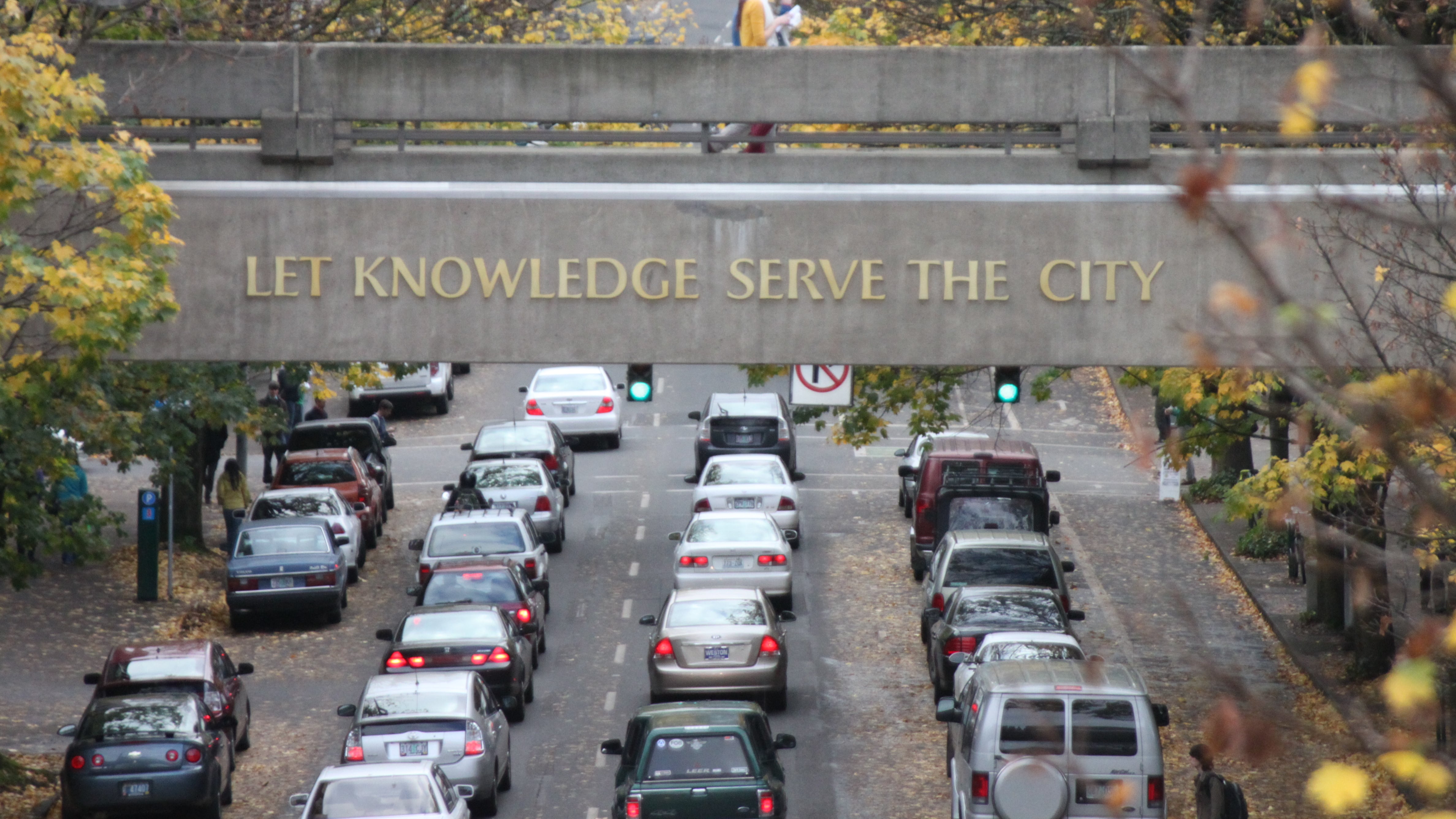After a year of debate about cops on campus, Portland State University is planning on increasing its campus police presence in the coming months.
On Sept. 10, the school's interim president Stephen Percy presented a new campus policing plan in front of the school's Board of Trustees. It outlines plans to retain its 10 armed officers, add 10 student security ambassadors who will act as a "visible presence on campus," and increase the number of unarmed officers from four to ten in the coming months.
The university characterizes the plan as a "holistic, multi-pronged approach." But it will be met with pushback.
Last year, a black man named Jason Washington was shot and killed outside a sports bar called the Cheerful Bullpen by campus police as he attempted to break up a fight. He had reached to pick up a gun that had dropped out of his holster. Police shot him nine times. A grand jury deemed the police officers were acting in self defense, and were not charged with a crime.
Following his death, a group called Disarm PSU formed to protest allowing armed campus cops.
Ben Anderson-Nathe is a professor at Portland State University. He's one of the professors who has offered support to the student group to oppose armed officers, alongside many of his colleagues.
He says he appreciates Percy's thoughtful approach to the plan, but says he fears that the holistic rhetoric around the plan is simply "lip service" to pacify those who oppose armed cops.
"I think it remains to be seen if any of that has real value or power or teeth. If it doesn't, it's simply lip service," he says. "I want to believe that it will be different, but I am profoundly underwhelmed with the university's response to date."
As one of the professors who's been engaging in discussions with school administration since 2014 when it decided to sever its ties with the Portland Police Bureau and introduce its own police force, Anderson-Nathe says staff opposed to disarming were not thoroughly included in the process of forming the new plan.
"To my knowledge, the group of faculty who put together the Disarm PSU hashtag and Facebook group was not involved in the creation of the plan," says Anderson-Nathe.
PSU's statement says that the committee tasked with helping Percy form the plan met repeatedly with student groups who both opposed and supported having armed police on campus to inform the plan. The statement reads that members of the school's Black Student Union and PSU Student Union "provided perspectives that were absent from earlier reports."
It adds: "The plan recognizes the issue of campus public safety is not a binary choice: to arm or to disarm."
Percy addressed the board regarding the new plan and acknowledged the controversial nature of armed officers.
"Some members of the campus community feel unsafe with the presence of armed officers; while others believe that an armed presence is needed to provide a safe and secure environment," he said in a speech. "I want to acknowledge these strongly held feelings and to tell you that I respect them, and I respect all of you who have shared them with us."
Anderson-Nathe takes issue with the school using its identity as an urban campus to warrant what he calls "exclusionary practices" by arming police who make some students—especially some minorities—feel unsafe.
"There's a profound inconsistency and hypocrisy on priding ourselves in being an urban-serving institution at the same time we're using our urban location as a proxy for exclusion and locking down our campus buildings to people we don't actually want on campus," says Anderson-Nathe.
The school's hiring process to fill the added positions is currently underway.

